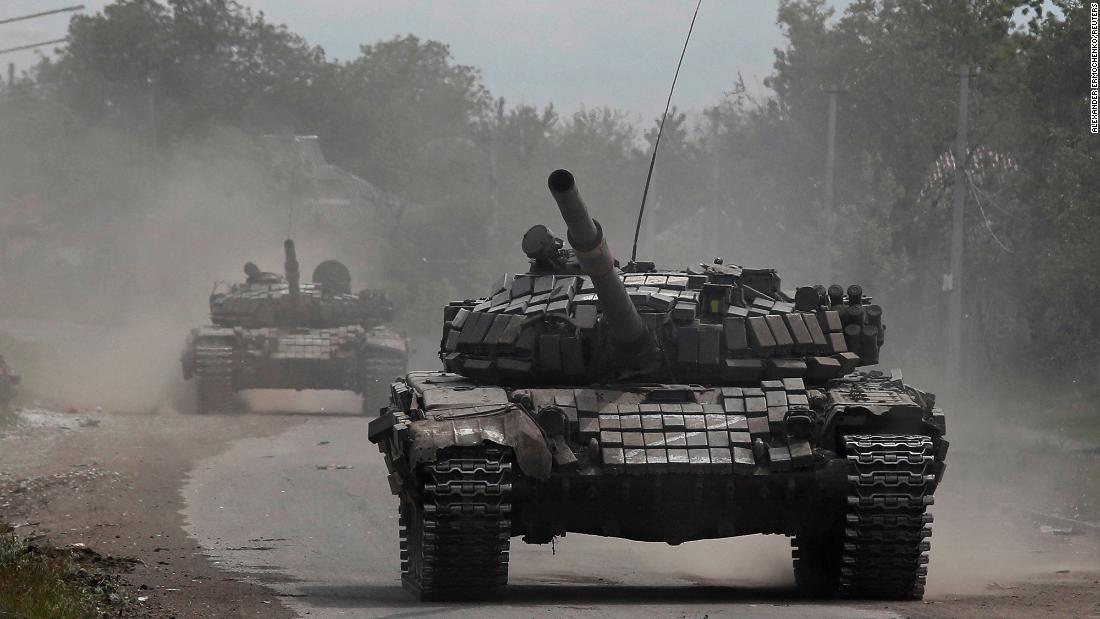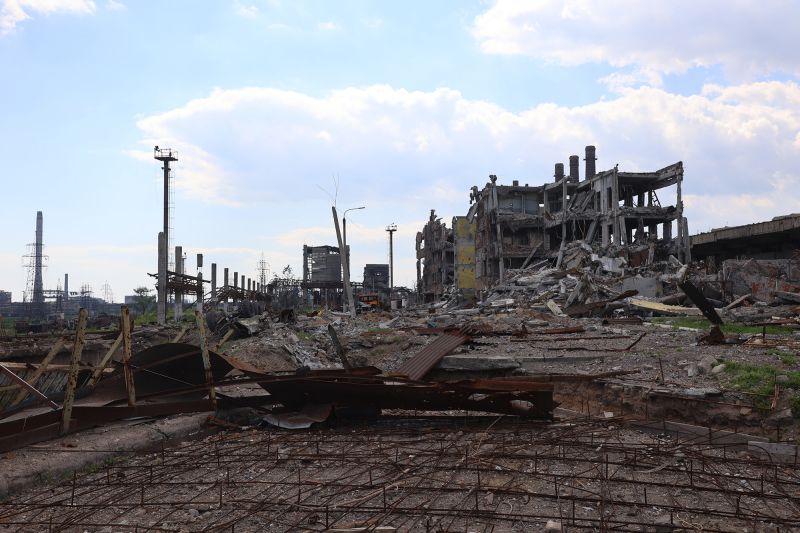

Two wives and a girlfriend of Ukrainian troops captured by Russian forces or unaccounted for after defending the Azovstal factory in a lengthy siege told CNN they had little or no information about the whereabouts of their loved ones.
“I have not been in touch with my husband or got any information about him lately,” said Anna Ivleva, the wife of Anton, a marine who was seriously wounded in Azovstal. “The last time we spoke was on April 13. And then his brothers-in-arms would send me texts that he was still alive.”
Ivleva said Ukrainian government officials had been in touch but added that there was “no information” on where Azovstal fighters were being kept and under what conditions. She is holding out hope her husband is alive, even if in captivity.
“We all — families, wives and mothers of the marines, are sticking to each other, we are always in touch with each other 24/7,” she said. “We always exchange any available news, we are like a family.”
The besieged Ukrainian port city of Mariupol fell under complete Russian control earlier this month with the surrender of Azovstal, the city’s last bastion of Ukrainian defense. It is unclear how many Ukrainian troops are now in Russian custody, but the Russian military has claimed that over 2,000 Ukrainian servicemembers surrendered there. Russian state propaganda has demonized Azovstal defenders as “Nazis,” raising serious concerns about how they may be treated in captivity.
A woman named Yana helped organize events in Kyiv in support of Azovstal fighters. Her boyfriend is a marine who was in Azovstal. She spoke on the condition of anonymity, citing security concerns.
“I have not heard from him or anything about him,” she said. “Last time we were in touch was on May 11.”
She said the Ukrainian government had not provided any information on where her boyfriend might be.
“My boyfriend’s mother was contacted by the ICRC [the International Committee of the Red Cross], I can’t remember when exactly,” she said. “They only told her he was alive, that’s it.”
The ICRC has been involved in registering combatants leaving the Azovstal plant since May 17 – partly to help prisoners of war keep in touch with their families. The organization has been working in Ukraine since 2014, when the war in Ukraine’s Donbas region began.
Another wife of an Azovstal defender, Tetiana, said her husband managed to call her from an unknown number after the surrender and said some of his comrades were being held in a town in separatist-held Donetsk oblast. CNN agreed not to report her surname for the same reasons.
“His voice was calm and confident,” she said. “He said that the conditions they were being kept in were OK. He said it might be possible in the future that they would be allowed to receive some packages.”
Tetiana said she spoke with her husband for about 10 minutes, and that her husband said that he would try to call again.
“That’s it, no more calls or news,” she said.